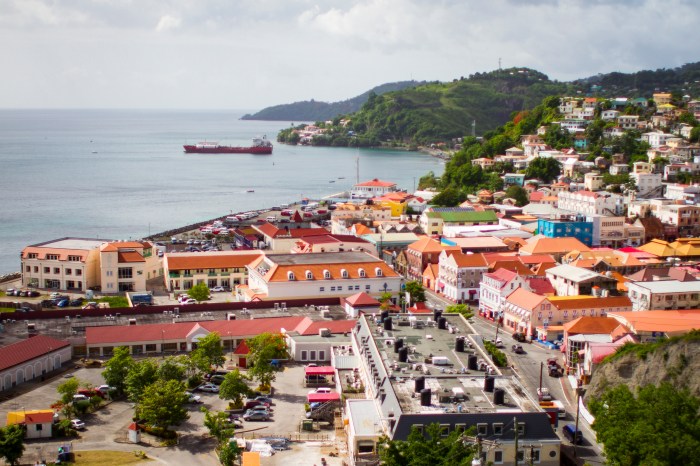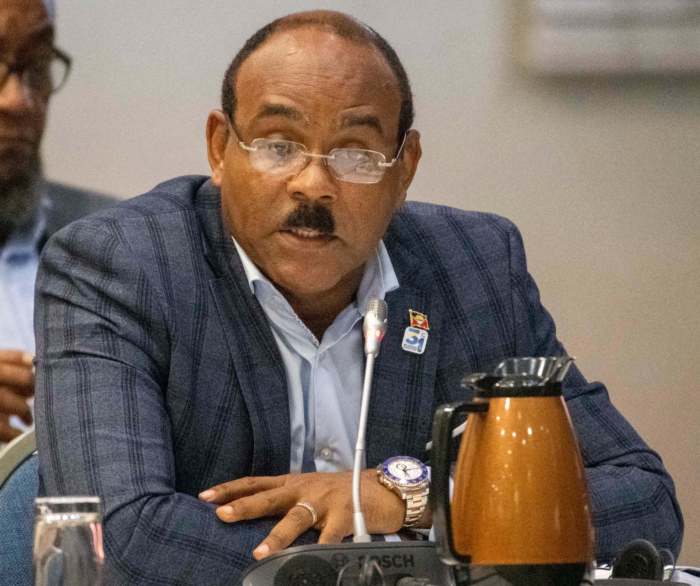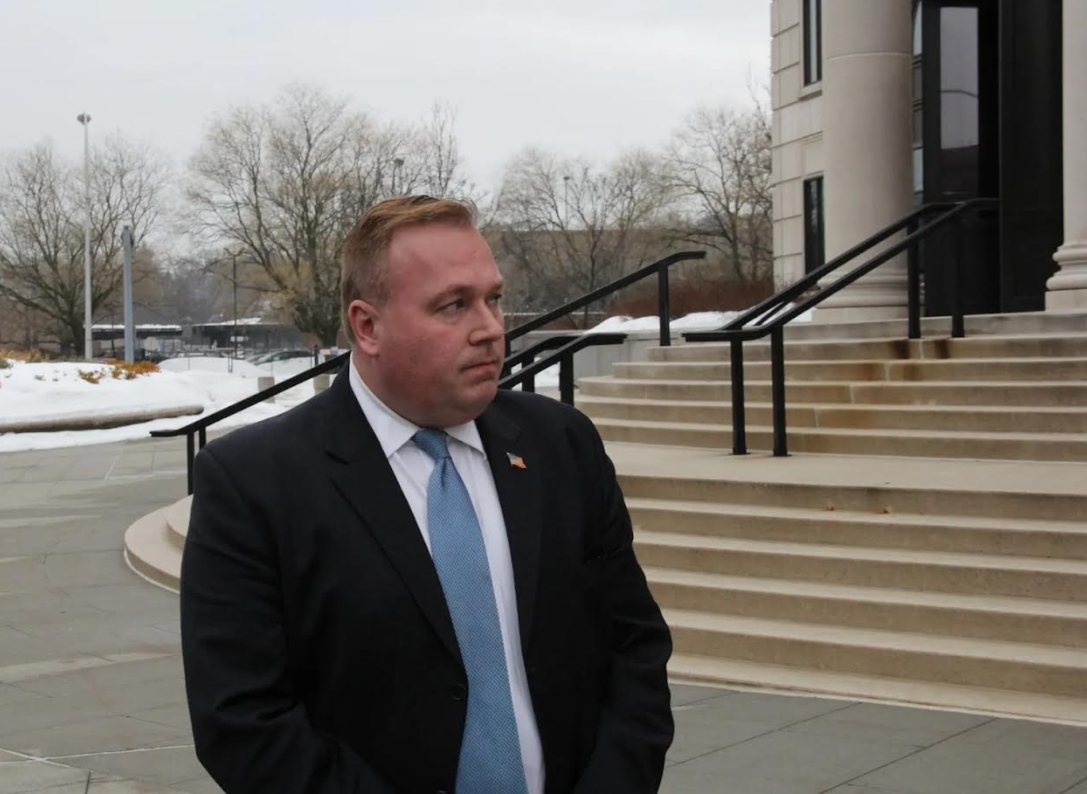Antigua
The Antigua and Barbuda government plans to phase out the current passport and to implement legislation to tighten border security amidst several deadly attacks in several countries recently.
Minister of Foreign Affairs, Immigration and Trade Charles “Max” Fernandez said these changes are to come in the near future.
He said the new passport will have a chip in it which makes it more difficult to forge and at the same time it will have a lot more security features.
The minister said Cabinet is in the processing of finalizing between two companies that have bids on it and once the process is complete ‘we will be looking at the middle of next year when we will start to see changes.”
He said although phasing out of the current document will be costly it is a necessity, adding that it is too early in the process to determine whether the new passport will cost more than the current document, which costs $60.
Fernandez said with regards to the new legislation to protect the border, work has already started towards stepping up in the area of Advance Passenger Information System (APIS).
Additionally, he said, it is anticipated that the e-visa system, which was to be implemented at the start of November, will be ready for use very shortly.
Bahamas
The Bahamas government is providing trailer homes as temporary shelter for some of the Bahamians who were displaced after Hurricane Joaquin ripped through the Central and Southeast Bahamas in October.
And it is also offering tax exemptions on goods for recovery and rebuilding. The first batch of temporary housing has been assigned to Crooked Island and Acklins Island, which were severely affected by the Category 4 hurricane.
The trailers are re-outfitted with living quarters, bathrooms, kitchen, television and air-condition units.
Assistant Secretary of the National Emergency Management Agency (NEMA) Chrystal Glinton said the residents would be housed in the trailer homes until their own homes could be repaired or replaced during the reconstruction phase.
The finance minister has also waived Landing Fees, Departure Tax for non-commercial flights bringing in relief goods and Customs Processing fees on imports in those islands affected by the hurricane.
The list of approved duty-free goods includes building materials, plumbing fixtures and material, household furnishings and appliances.
Barbados
The Inter-American Development Bank (IADB) has approved a US$25 loan, which will be used to rehabilitate sections of two major highways to lower transport costs and improve road safety.
The IDB loan will finance rehabilitation and improvement of approximately 31 kilometers of key segments of Barbados’ primary road network, including drainage, construction of sidewalks, rehabilitation of associated bridges and culverts and safety features.
It will also contribute to the strengthening of transport sector governance through capacity building within Barbados’ Ministry of Transport and Works (MTW) in transport planning and asset management, maintenance financing, technical standards for quality control and assurance gender parity and road safety.
The project will also provide funds for institutional strengthening to improve transport sector planning, road maintenance financing, civil works project implementation and supervision.
Dominica
Dominica Prime Minister Roosevelt Skerrit has called for the establishment of a health scheme among Eastern Caribbean states to ease the financial burden of Chronic Non Communicable Diseases (CNCDs).
Skerrit told his regional counterparts at a meeting in Roseau that diseases such as diabetes and hypertension were a major threat to regional economies and it was time for countries to pool their resources.
“For a population of 600,000 people it is an ideal constituency for that kind of consideration because too many citizens are finding it difficult to finance health care,” he said, adding “that many people do not have insurance or the funds to finance their health care.”
“I am hoping that we can advance the discussions with regard to a regional health insurance program,” Skerrit added.
The two-day 62nd Organization of Eastern Caribbean States (OECS) Authority Meeting ended recently.
Guyana
The Guyana government has announced that the long-delayed local government elections will be held on March 18 next year.
The last local government election was held in 1994 when the now opposition People’s Progressive Party (PPP) won the polls.
Communities Minister Ronald Bulkan said that the democratic renewal of local government organs is long overdue.
“Elections are important because they are a democratic constitutional right. They are essential because the entire local government system in currently rotten and must be rehabilitated and made fully functional,” he said, adding that “local government is about handing decision-making power to the people to enable them to efficiently and effectively manage their communities”.
Bulkan said local governments are mandated by law to provide many essential services, such as improving the living conditions, creating jobs in the various local areas, maintaining roads, bridges, garbage collection, cleaning drains, promoting a healthy environment and encouraging citizen involvement in their communities.
Grenada
The International Monetary Fund (IMF) has approved US$2.7 million after the completion of the review which enables the disbursement of the fund, bringing resources made available to Grenada under the arrangement to the equivalent of about US$11 million.
The executive board of the IMF recently completed the third review of Grenada’s economic performance under a program supported by a three-year arrangement under the Extended Credit Facility (ECF).
Grenada’s economic performance under the authorities’ home-grown program is on track and has remained strong. All performance criteria for end-June 2015 were met and all structural benchmarks for the third review were implemented.
Jamaica
The Governor of the Bank of Jamaican Brian Wynter said that the local currency is no longer overvalued and that the bank has enough United States currency in reserves to ensure the Jamaica dollar does not move in unpredictable ways.
He said the Jamaican dollar is no any longer overvalued and therefore it is less susceptible to unpredictable seepage.
Wynter added that additional insurance, the Bank of Jamaica has carefully built up a very considerable surplus in the Net International Reserves.
The governor of the bank was at the time speaking at the quarterly Monetary Policy Briefing recently, said that money would be available and will be available for spending in the economy as the government prepares to repay J$62 billion of debt to local investors next year.
He said the Central Bank would have preferred if most of the $62 billion payout to maturing National Domestic Exchange bondholders next February flow into productive activity and the stock market.
Wynter said while he is anticipating some of the money would find its way into investments, he also anticipates not all of it would and the Central Bank also expects that stakeholders in both and private sector are going to seek to take advantage of the opportunity to issue debt and equity to finance projects or acquisition.
St. Kitts
The government of St. Kitts-Nevis has made history when it became the first country in the Eastern Caribbean States (OECS) to launch the Criminal Justice Strategic Board (CJSB).
Prime Minister Timothy Harris who is also minister of National Security has appointed Attorney General Vincent Byron as chairman of the 15-member CJSB.
AG Byron said the launch is a very important aspect of the Criminal Justice System (CJS).
The CJSB is part of a six-point plan which was implemented by the Royal St. Christopher and Nevis Police Force earlier this year, will develop protocol for the judiciary, to ensure that certain cases are disposed of in a timely manner in order to bring perpetrators to justice speedily and enforce curfews.
Sirah Abraham, criminal justice adviser to Barbados and the Eastern Caribbean, congratulated the government for launching the board and said it is one of the most important steps to criminal justice reform.
“The criminal justice system is made up of a number of entities, each plays a different role in a system designed to address the communities expectations that people who break the law are punished and face appropriate consequences,” the attorney general said.
Trinidad
The Trinidad and Tobago Police Complaints Authority (PCA) has recommended to the director of Public Prosecution (DPP) that certain police officers be charged with Misbehavior in Public Office and willful neglect of duty following an investigation into an alleged marijuana discovery at the private home of former Prime Minister Kamla Persad-Bissessar two years ago.
The PCA investigation started five months ago after former national security minister Jack Warner admitted that he and former deputy commission of police Mervyn Richards were part of a plan to “cover up” the alleged discovery of marijuana at the Phillipine, South Trinidad home of Persad-Bissessar in April 2013.
The PCA investigation “was to determine whether there was conduct on part of police officers which amounted to a criminal offence or serious police misconduct with regard to the Trinidad and Tobago Police Service’s handling of the alleged discovery of marijuana.”
The police have also been carrying out an investigation but it has not yet concluded.
— compiled by Azad Ali

























